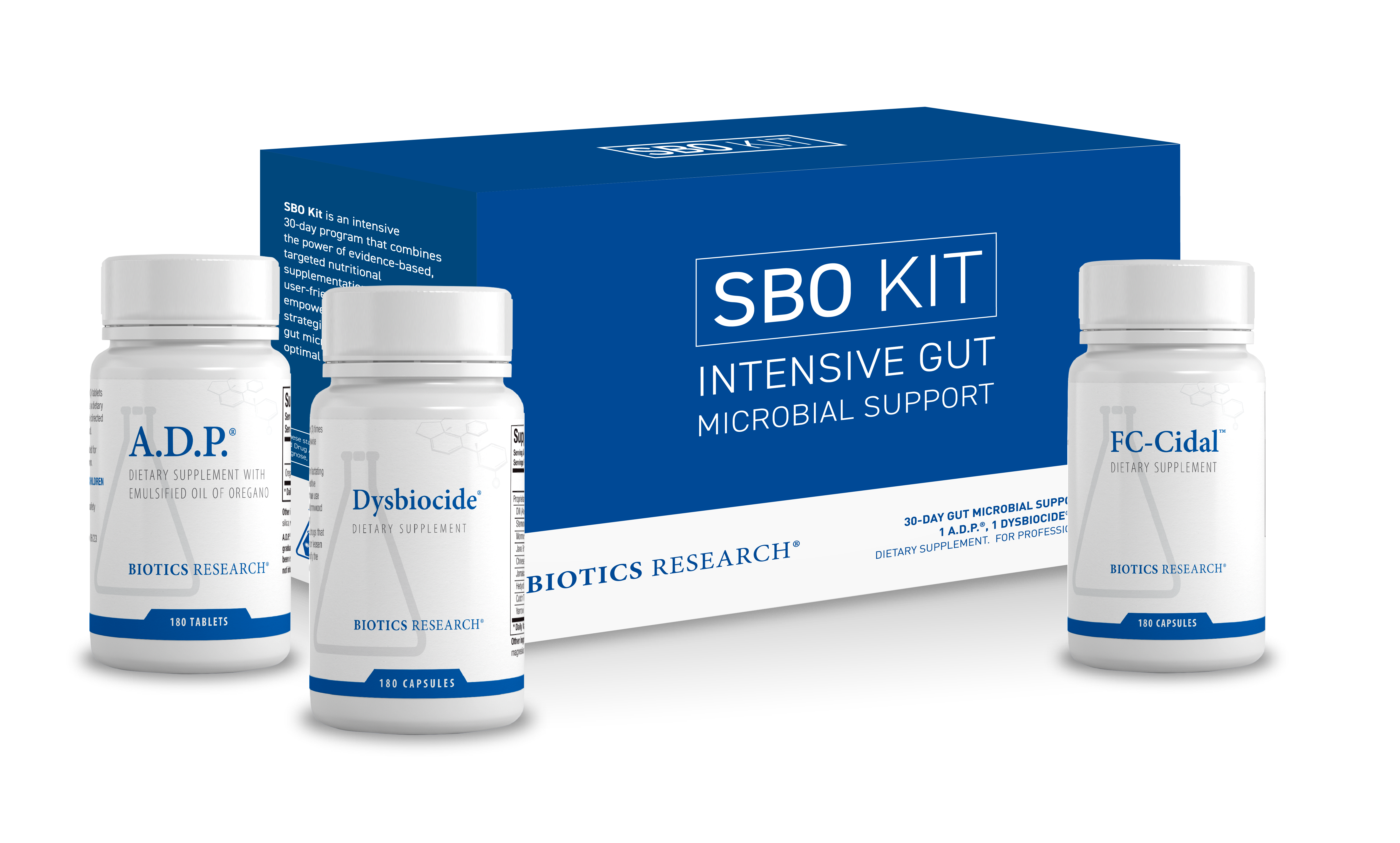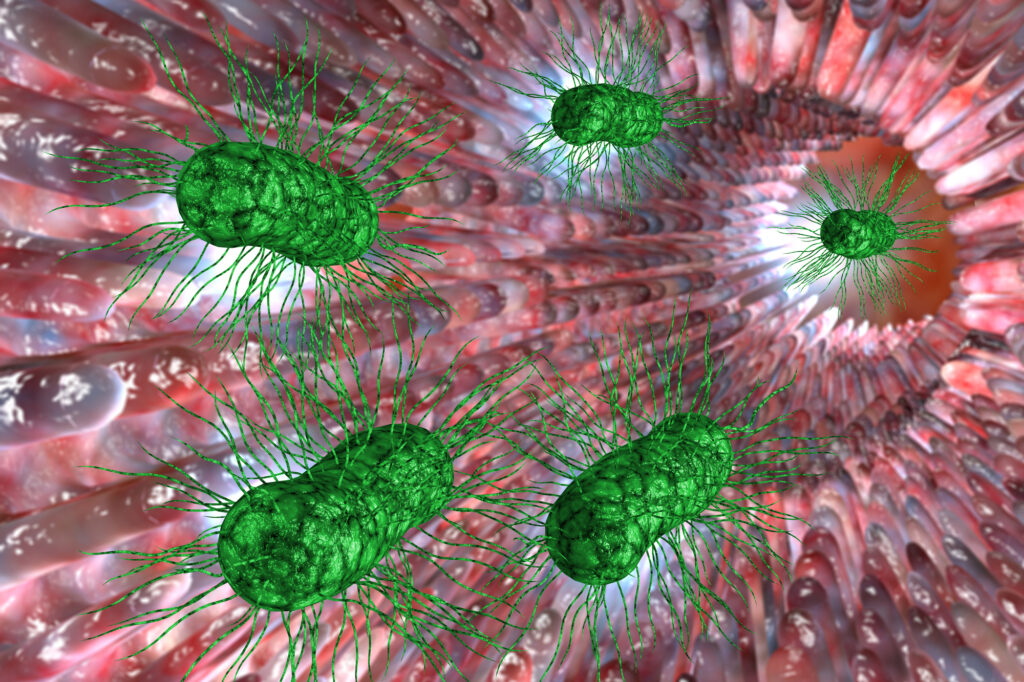Could there be natural support for patients with small intestinal bacterial overgrowth (SIBO)? SIBO is characterized by a higher concentration of bacteria exceeding 100,000 colony-forming units per mL of fluid in the proximal jejunum. It can cause symptoms such as bloating, gas, abdominal pain, diarrhea or constipation, and malnutrition. SIBO may affect as much as one-third of individuals with irritable bowel syndrome (IBS) and up to 62% prevalence has been reported in people with Crohn’s disease. In the general “healthy” population, estimates have reached 22%.1,2 Conventional treatment typically involves antibiotics such as rifaximin, but research shows us the potential effectiveness of herbal therapies in managing SIBO.3
Oil of Oregano
Studies suggest the biologically active compounds in oregano, carvacrol and thymol, are biocidal against gram-positive and gram-negative bacteria in the jejunum, ileum and colon.4 Other studies showed oil of oregano negatively impacts the growth of biofilms produced by pathogenic bacteria, suggesting their potential use for SIBO.5
Olea europaea (Olive leaf)
The antimicrobial properties of Olea europaea could be beneficial for developing new approaches for managing SIBO. Olive compounds inhibit spore-forming bacteria, including Staphylococcus aureus.6 Olive polyphenols may help balance the body’s natural inflammatory response and be relevant to SIBO.
Tabeuia impetiginosa (Pau D’Arco, LaPacho)
This tropical tree is native to Brazil, has antibacterial qualities, which have been useful for inhibiting the growth of gastrointestinal bacterial pathogens.7 T. impetiginosa also contains lapachol, a naphthoquinone that typically accounts for 2-7% of the content of this herb.8 Naphthoquinones are potent antibacterial agents that are raising interest to help treat bacterial infections. Among the naphthoquinones, β-lapachone was found to be the most effective in fostering the growth of healthy bacteria.
How These Herbal Supplements Helped SIBO Patients
A total of 104 patients who tested positive for newly diagnosed SIBO through lactulose breath testing (LBT) were given the option of either receiving daily rifaximin 1200 mg or commercial herbal preparations including Dysbiocide® and FC-Cidal™ from Biotics Research. Among the 37 patients who received herbal therapy, 46% showed a negative follow-up LBT, while among the rifaximin users, it was 34%. Among the 44 rifaximin non-responders, 14 were offered herbal rescue therapy, and 57.1% of them had a negative LBT after the herbal therapy. Ten non-responders were given triple antibiotics, and 60% responded. Adverse effects in the rifaximin-treated group included one case of anaphylaxis and two cases of hives. Only one case of diarrhea was reported in the herbal therapy group. These results suggest that these herbal therapies demonstrate similar effectiveness to rifaximin in resolving SIBO as indicated by LBT. The herbal therapy also appeared to be as effective as triple antibiotic therapy for rescuing rifaximin non-responders with SIBO.
The SBO Kit by Biotics Research
Biotics Research has developed the convenient SBO Kit, a 30-Day Program that supports patients needing intensive gut support and microbiome balance. The SBO Kit contains three supplements that include the herbal solutions discussed above, FC-Cidal™ and Dysbiocide®, along with A.D.P.®.
A.D.P.® supplies a patented formula of sustained release, emulsified oil of oregano, where it functions to impact undesirable intestinal organisms.*
FC-Cidal™ supplies a proprietary blend of herbs and herbal extracts designed to help support a healthy microbial balance due to a wide array of terpenoid and polyphenolic compounds.*
Dysbiocide® supplies a proprietary blend of herbs and herbal extracts that provide synergistic, comprehensive support for healthy gut microbiota.*
For more information visit the Biotics Research® website at
REFERENCES:
- https://pubmed.ncbi.nlm.nih.gov/37125253/
- https://www.researchgate.net/publication/255984679_Review_article_Small_intestinal_bacterial_overgrowth_-_Prevalence_clinical_features_current_and_developing_diagnostic_tests_and_treatment
- https://www.ncbi.nlm.nih.gov/pmc/articles/PMC4030608/
- https://pubmed.ncbi.nlm.nih.gov/31080888/
- https://pubmed.ncbi.nlm.nih.gov/31088182/
- https://www.researchgate.net/publication/51058837_Antibacterial_activity_in_spices_and_local_medicinal_plants_against_clinical_isolates_of_Karachi_Pakistan
- https://www.phcogcommn.org/content/253
- https://www.researchgate.net/figure/Chemical-structure-of-lapachol_fig2_268378689






